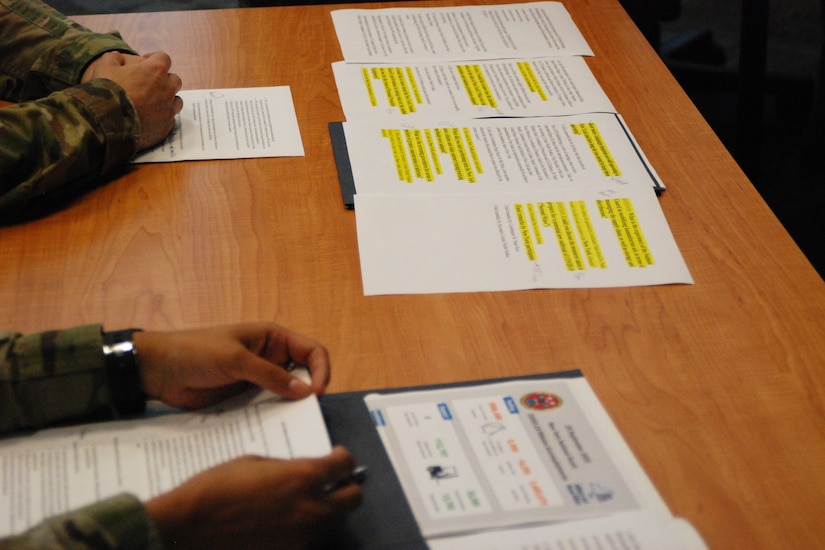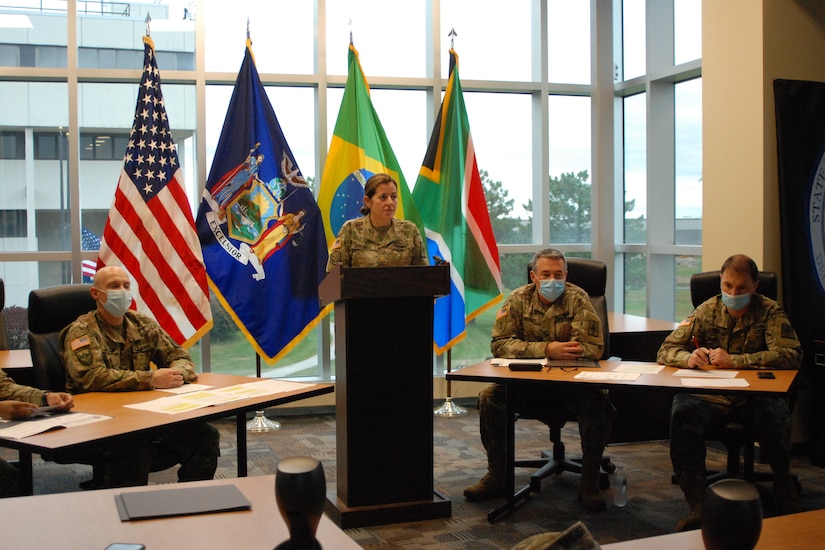Oct. 7, 2020 | , New York National Guard
The New York National Guard is developing a relationship with Brazil's military through the National Guard's State Partnership Program.

Soldiers assigned to the states' medical command laid out how New York dealt with COVID-19, going from having some of the highest rates of infection in the country, to one of the lowest.
The shared experiences between New York and Brazil were aimed at creating a better understanding as to which responses are more successful at handling the pandemic. The discussion included Brazilian ambassadors, doctors and members of the Brazilian military.
During the conversation, the Brazilians said their perception of the pandemic was that “it was a terror in New York.”
Brazil, with a population of 210 million, has recorded nearly 5 million COVID-19 cases. The U.S., with a population of 330 million, has reported 7 million cases.
"New York was one of the first epicenters in the United States," said Army Col. Dennis Deeley, who commanded the Javits Medical Center in New York City. "The governor requested assistance [from] the National Guard at the early stages of the pandemic."
At its peak, more than 3,600 members of the New York National Guard were on duty responding to the pandemic across the state. Ultimately, one in four New York Guardsmen served in a COVID-19 response capacity.
Deeley explained to the Brazilians that the state set up five joint task forces across the state to manage personnel, logistics and medical assets.
Because of this structure, Deeley was able state when asked, that at no point were New York's resources overwhelmed. However, he did say that testing was an issue at first.
"This was originally a limiting factor for New York," Deeley said. "New York encountered this in early March and saw an improvement in May once increased quantity was available. Drive-thru testing was very effective."
With one concern being encouraging citizens to take all precautions, the Brazilians asked if the guard was ever used to enforce quarantine measures.
"No," Deeley said. "The people in New York got the message very quickly. They took the brunt of it."

The New Yorkers and Brazilians discussed the use of field hospitals, as each have had their own epicenters. New York had New York City and Brazil had Sao Paulo, with 247,000 and 972,000 cases, respectively.
Deeley talked about how New York built up four alternate care facilities across the state, with only the one established at Manhattan's Javits Convention Center coming online.
The point he explained to the Brazilians though, was that even though one was used, New York was ready for things to get worse before they got better.
So far there have been more than 32,000 COVID-19 deaths in New York, and more than 145,000 in Brazil. The two sides wrapped up their video call with a better understanding of how each dealt with the pandemic, and how the two sides can continue to work together on major issues such as this.
Dr. Paulo Rossi Menezes, disease control coordinator at the Brazilian State Department of Health, and Col. Walter Nyakas, chief secretary of the Military House and state coordinator of civil protection and defense of the State of Sao Paulo, wrapped things up by expressing their appreciation to New York for discussing these topics and the level or cooperation between the two entities.
Speaking through a translator, they both concluded with an eloquent “thank you” and hopes for further discussion.
“This is the reality of what we're living with,” they said.
(Air Force Tech. Sgt. Ryan Campbell is assigned to the New York National Guard).








No comments:
Post a Comment